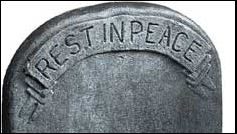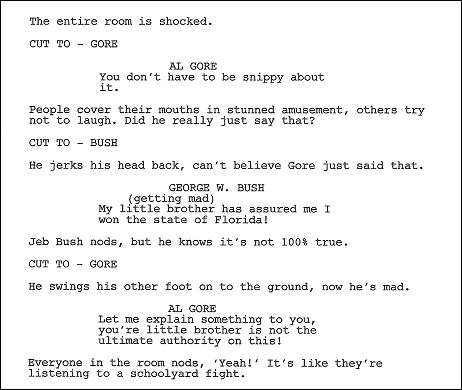I saw the first two installments of HBO’s final Sopranos season last night, and as usual, they’re fantastic and brilliant and darkly funny and all the other superlatives, but there’s not much in the way of any pulverizing story turns — nothing decisive or darkly threatening at all regarding the fate of Anthony J. Soprano, his immediate family or associates.
Okay, a prominent character — a rival — meets his ultimate fate but not at the hand of an assassin or lawman, and yes, tensions between Tony and two of his closest family allies come seeping to the surface, but we’re all familiar with how producer- creator David Chase like this series to play and feel. Aroma, character, emotional undercurrents and karma simmering over a low flame in a kitchen in a big fat New Jersey McMansion. The series always hits home and sinks in, but rarely in the way of Shakespearean high drama.
There sure as shit isn’t anything at all in the way of a narrative toboggan ride in episodes #78 (“Sopranos Home Movies”) and #79 (“Stage 5”), I can tell you. But I loved every minute. I was in pig heaven. In fact, I watched the second installment twice.
You wouldn’t think that a longish scene about four close family members (Tony, Carmela, Bobby, Janice) playing Monopoly at a vacation house on a big lake could result in dramatic fireworks, but the one in the first episode does. (Actually, the way a person plays Monopoly is character-revealing. I noticed that about my kids when we played when they were eight and nine.)
Does anything “happen” in this episode? Not really, but it’s hard to tell with this series. Maybe some kind of plot seed is being planted….maybe. Wherever they’re going, Chase and his writers are certainly in no hurry.
The second episode is about Christopher Moltisanti’s slasher movie, Cleaver, and about a certain party dealing with illness and possible death. I’m not going to get into it any further except to say that director Sydney Pollack is superb as an orderly in a prison hospital who was put in jail for killing his wife and two others. (Has Pollack ever given a performance that didn’t feel absolutely grounded and believable? He was easily the best thing in Husbands and Wives, Changing Lanes, Eyes Wide Shut, etc.)

I don’t sense a bullet in Tony’s future — I just don’t see it. Chase is not a black- and-white moralist who needs his sinners to pay up. Besides, the pressure must be enormous to keep the boss alive in case someone wants to try and shoot a feature-film version down the road. I don’t know anything and I can’t smell anything either (not with this series), but if anyone’s going to get whacked it’ll be Bobby or Christopher or Phil Leotardo…one of those guys. But I really don’t know anything.
One thing about The Sopranos is the way people turn around and suddenly the furies are upon them. In a way, Bob Clark‘s death was like a Sopranos plot turn. Out for a dinner or some kind of good time with his son, some asshole coming the opposite way is getting a blowjob from his girlfriend, the car veers to the left and wham…over, lights out, eternity. Ya never know what’s comin’.








